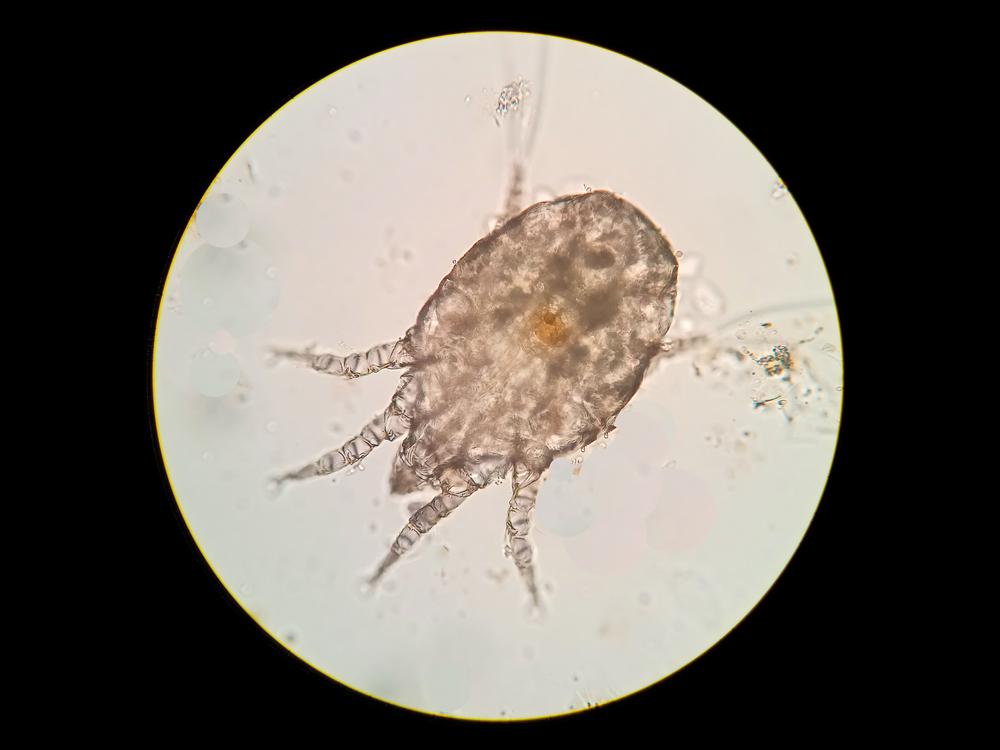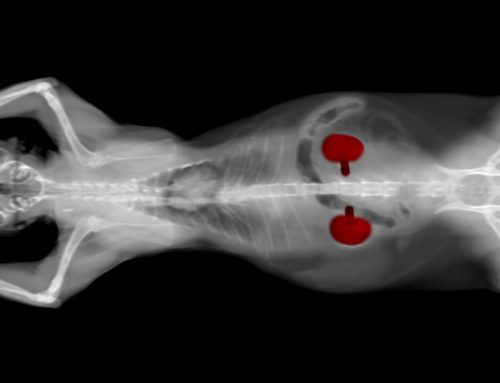We like to think everything about our furry friends is cute and cuddly, but like all animals, dogs and cats can be less than adorable—for example, they can harbor unlikeable parasites, including fleas, ticks, and worms. And, as if the unsightly presence of these interlopers isn’t punishment enough, they can negatively impact pet health.
To help owners navigate the nasty and nerve-wracking topic of parasites and pets, we’ve compiled—and answered—the most common questions received at Mercer Street Animal Hospital.
Question: What are the most common parasitic diseases in pets?
Answer: Pets can serve as hosts to many different parasite types, including insects, arachnids, worms, and protozoans. And, parasites are more than a nuisance—they can make pets incredibly sick by feeding on their blood, damaging organs, or transmitting harmful diseases. The most common parasites include:
- Heartworms
- Roundworms
- Hookworms
- Whipworms
- Tapeworms
- Giardia
- Ear mites
- Mange mites
- Fleas — The flea is a vector for diseases including Bartonella, Mycoplasma haemofelis, murine typhus, and tapeworms.
- Ticks — The tick is a vector for diseases including Lyme disease, anaplasmosis, ehrlichiosis, and Rocky Mountain spotted fever.
Q: How can I tell if my pet has parasites?
A: Parasites can generally be identified:
- Visually — Some parasites (e.g., fleas, ticks, roundworms, and tapeworms) are visible to the naked eye. Fleas and flea dirt (i.e., reddish brown pepper-like feces) can mostly be found in the pet’s hair above the tail base, while ticks like to hide on the neck, above the eyes, on the ears, in the armpit (i.e., axilla), or in the groin area. Roundworms and tapeworm segments, which resemble spaghetti or rice grains, respectively, can be passed in stool or vomit.
- With laboratory testing — Microscopic evaluation can be used to diagnose invisible parasites, including intestinal parasite eggs, skin or ear mites, and giardia cysts.
- From clinical signs — Although many healthy adult pets can harbor intestinal parasites, puppies and kittens can experience serious—sometimes life-threatening—illness. Parasites such as heartworms and ticks can affect cats and dogs of all ages. Signs will vary, but can include:
- Appetite or thirst changes
- Diarrhea
- Vomiting
- Distended abdomen (i.e., intestinal parasites)
- Weakness or lethargy
- Intense scratching
- Allergic reactions (i.e., flea allergy dermatitis)
- Localized inflammation around the bite
- Lameness or joint pain
- Cough
- Exercise intolerance
Q: How are parasites diagnosed in pets?
A: At Mercer Street Veterinary Hospital, every evaluation begins with a complete nose-to-tail physical examination of your pet to check for visible external parasites, and to assess your pet’s gum color, heart health, muscle tone, physical and mental condition, and hair coat.
Based on examination findings, further, specific testing that includes an intestinal parasite screening (i.e., fecal floatation), blood tests, X-rays, ear swabs, or a skin scraping may be recommended.
Q: How do pets get parasites?
A: Parasite infection or infestation routes vary, but may include:
- Direct contact — Close contact or association with an infected pet or transmission via insect bite (e.g., vector-borne diseases from a mosquito, flea, or tick) can occur.
- Ingestion (i.e., fecal-oral) — Pets may unintentionally ingest parasites or parasite eggs in contaminated animal feces, soil, water, or food. This is a common route for gastrointestinal parasites.
- Transplacental or transmammary — Roundworm infection, which can be passed from the mother to their young across the placenta or through the milk, is common in puppies and kittens.
Q: How are parasitic diseases treated in pets?
A: Veterinary-supervised treatment for parasitic disease is always recommended. The over-the-counter (OTC) dewormers and flea and tick products that are available may not eliminate your pet’s specific infection, especially if multiple parasites are present, and some OTC medications are not effective at killing parasites.
Your Mercer Street Veterinary Hospital veterinarian will recommend treatment based on your pet’s diagnosis, that typically will include:
- Eliminating parasites — Parasites must be eliminated to break the life cycle and stop disease transmission.
- Addressing present illness — Disease treatment, which may be simple or complex, will address specific signs and any internal injury.
- Avoiding reinfection or complications — Practicing strict hygiene, cleaning up after your pet, and preventing access to infective areas can help avoid reinfection during the treatment period.
- Preventing future exposure — Regularly administered parasite preventives (e.g., heartworm, flea, and tick preventives) can help reduce the likelihood of future infection or disease transmission. Controlling your pet’s access to contaminated environments or businesses is also recommended.
Q: Can I get parasites or parasitic diseases from my pet?
A: Some parasites and their diseases are zoonotic, meaning they can be transmitted from animals to people. Domestic pet zoonoses include:
- Intestinal parasites — Roundworms, hookworms, giardia, and tapeworms
- Vector-borne diseases — Ticks and fleas obtain pathogens when they first feed on infected wildlife, making vector-borne diseases zoonotic.
Q: How can I protect my pet from parasites?

A: Effective parasite prevention requires consistency and vigilance. Our hospital team recommends this multi-step approach:
- Year-round preventive use — Most heartworm preventives contain a broad-spectrum dewormer that eliminates common intestinal parasites. Similarly, many flea and tick preventives can protect against various mites.
- Annual testing and wellness care — Maintain your pet’s overall health with yearly exams and parasite screening.
- Basic hygiene — Remove pet waste promptly, and always wash your hands after handling your pet or pet supplies.
- Environment — Avoid wildlife-populated areas, remove brush and tall grass from your yard, and ensure your pet’s grooming, boarding, or training facility requires parasite prevention.
If you’re itching to find out if your pet has a parasite problem, don’t be embarrassed—contact Mercer Street Veterinary Hospital to schedule an appointment.



















Leave A Comment